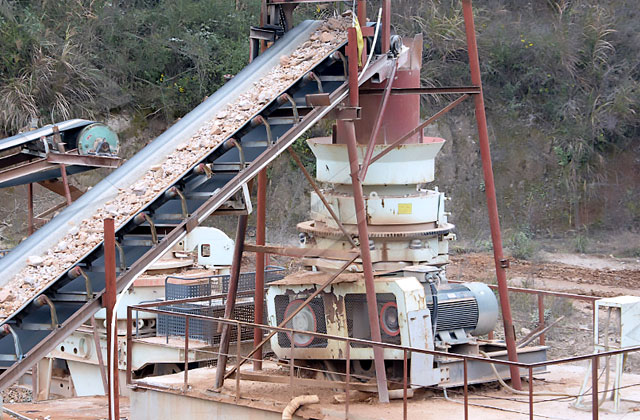Choosing a granite crusher involves considering various factors to ensure optimal performance and efficiency for your specific application. Here are five key aspects to guide your decision:
1. Understand the Granite Characteristics
Granite is a hard, dense, and abrasive stone, requiring a crusher that can handle high pressure and resistance to wear. Its mineral composition, which includes quartz, feldspar, and mica, contributes to its hardness (ranging between 6-7 on the Mohs scale). Selecting a crusher that can withstand granite’s toughness is crucial to ensure effective crushing and reduce maintenance costs. A machine with high durability and resistance to abrasion is essential for processing granite.

2. Evaluate Crusher Types Suitable for Granite
Several crusher types can process granite effectively, including jaw crushers, cone crushers, and impact crushers. Jaw crushers are suitable for primary crushing, handling large granite pieces and reducing them to smaller sizes. Cone crushers are ideal for secondary crushing, offering precision in producing various granite aggregate sizes. Impact crushers can be used when a more cubical shape is required for the final product, but they might wear out faster due to granite’s abrasiveness. Choosing the right crusher type depends on the desired output and processing stage.
3. Consider the Production Capacity Requirements
The production capacity of a granite crusher should match the scale of the project. Crushers come in different sizes and output capacities, ranging from small portable units to large stationary machines. It is important to determine the required throughput (e.g., tons per hour) based on the volume of granite that needs to be processed. Oversizing the crusher could lead to unnecessary costs, while undersizing might result in inefficiency and delays. Balance the capacity with the project’s needs to optimize performance.
4. Assess the Desired Output Size and Shape
The required size and shape of the crushed granite will influence the choice of crusher. Jaw crushers are often used for producing coarse, chunky aggregate, while cone crushers are better for producing fine, uniform aggregates suitable for concrete or asphalt applications. If the goal is to achieve a specific shape, like rounded or cubical stones, an impact crusher might be more suitable. Understanding the final product requirements is key to selecting the appropriate crushing equipment.
5. Factor in Operating and Maintenance Costs
The overall cost of operating a granite crusher includes more than just the initial purchase price. Maintenance, spare parts, and energy consumption can significantly impact long-term expenses. Crushers designed for granite should have high-quality components that can endure frequent wear and tear. It’s advisable to choose a machine with a lower cost per ton, considering both fuel efficiency and ease of maintenance, to ensure sustainable and economical operation.
By focusing on these aspects, you can choose a granite crusher that fits your project’s needs, ensuring efficiency, durability, and cost-effectiveness.
